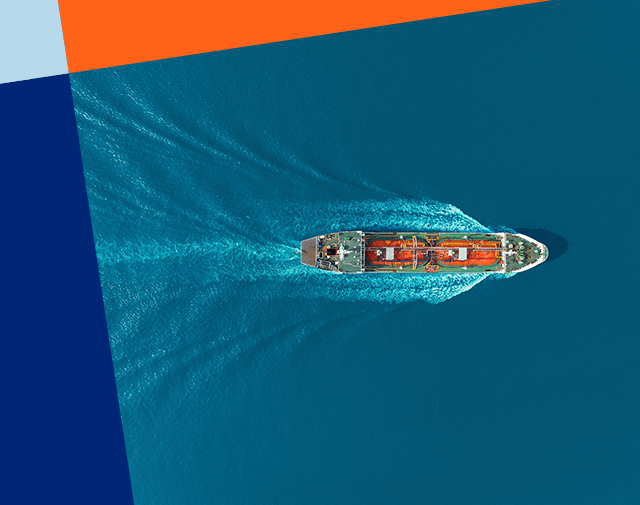Sustainability in Marine Engine Lubrication
06 Oct 2023
|
At Gulf Marine sustainability is taken very seriously; it is used as a filter for all major business decisions, including technological innovation, product development, supplier selection, industry partnership, and community involvement. The definition of sustainability of a lubricant is determined by many factors. For example, when it comes to marine cylinder oils, Gulf Marine evaluates the raw materials and manufacturing processes used to produce them, as well as how and where the lubricants are used. |
 |
|
In recent years, there is a growing interest in re-refined base oils (RRBOs) along with the trends of recycling, reducing carbon footprints, and protecting the environment. Many RRBO producers are collecting waste oils and removing impurities through various techniques such as vacuum distillation, hydrotreating, clay treatment, and solvent extraction. Since lubricants typically consist of large amounts of base oils, switching to RRBOs will enable lubricant manufacturers to reduce the carbon footprint of their lubricants. To help reduce carbon intensity in the maritime industry, Gulf Marine has been collaborating with industry stakeholders to develop marine cylinder oil lubricants utilizing RRBOs. Results of laboratory bench tests conducted by Gulf Marine have indicated that lubricant performance is not compromised when cylinder oils are formulated with RRBOs. Sea trials are currently being carried out by Gulf Marine and shipping partners for further performance validation.
The marine industry is working hard to reduce its carbon footprint. The International Maritime Organization (IMO) has set an ambitious target to peak GHG emissions from international shipping as soon as possible and to reach net-zero GHG emissions by or around, i.e. close to, 2050. Amongst the numerous emissions-reducing strategies put forth by industry stakeholders, alternative fuels seem to have a relatively huge impact on carbon reduction. Methanol and ammonia have been steadily garnering interest. Methanol is available as a fuel today and offers substantial reduction in carbon dioxide, sulfur oxides, and particulate matter emissions, compared to diesel fuel. Currently, lubricant developers are working to obtain more knowledge and insights from laboratory testing and a limited number of methanol-powered vessels, to fully understand the impact of methanol on marine lubricant performance. Ammonia is another attractive alternative fuel because it is carbon-free. However, ammonia presents critical considerations such as combustion difficulty, compatibility challenges, corrosion concerns, as well as toxicity and safety.
The key two-stroke marine engine designers have announced that they will be making methanol and ammonia engines available, either via newbuilding or by retrofitting. At this juncture, MAN ES recommends Category II BN40 cylinder oils for engines using low-sulfur fuels, including dual-fuel engines (< 0.5% S fuels, LNG, LPG, ethane, and methanol). The jury is still out on whether Category II BN40 cylinder oils can be used for ammonia engines. To this end, Gulf Marine has been working closely with strategic partners on developing lubricant solutions to holistically overcome lubricating challenges associated with these alternative fuels, especially methanol and ammonia.
As the maritime industry explores the potential of alternative fuels, it is clear that the bunkering operations will become more complex. The criteria for marine fuels selection will vary: as such, it will become difficult to compare and draw meaningful conclusions. Among the multiple challenges, Gulf Marine is keeping a close tab on the lubrication challenges, ensuring that the industry has the right lubricants to enable the use of the various alternative fuels. Gulf Marine will play its sustainability role so that the maritime decarbonization goal may be achieved effectively and efficiently.
Source: The Hong Kong Maritime Hub |



